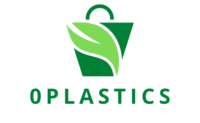Sustainable alternatives to single-use plastics are crucial for mitigating the environmental impact of disposable plastic products. These alternatives are designed to provide the convenience of single-use items while minimizing the harm they cause to the environment. Here are some sustainable alternatives to single-use plastics:
- Biodegradable Plastics: Biodegradable plastics are designed to break down more easily in the environment compared to traditional plastics. They are typically made from renewable resources like cornstarch, potatoes, or sugarcane. While biodegradable plastics offer a way to reduce plastic waste, their effectiveness in real-world conditions varies, and some may require specific composting facilities to break down properly.
- Paper Products: Paper bags, plates, and cups are sustainable alternatives to their plastic counterparts. Paper is biodegradable and can be easily recycled. However, it’s important to consider the overall environmental impact, as paper production can have a significant carbon footprint.
- Reusable Shopping Bags: Reusable shopping bags made from cloth, jute, or other durable materials are a sustainable alternative to single-use plastic bags. They can be used multiple times, reducing the need for disposable plastic bags.

- Glass Containers: Glass containers are a sustainable choice for food and beverage storage. Glass is non-toxic, does not leach harmful chemicals, and is endlessly recyclable. While glass is heavier and more fragile than plastic, it is a long-lasting and eco-friendly option.
- Metal and Aluminum: Metal and aluminum containers and bottles are durable and reusable, making them sustainable alternatives to single-use plastic bottles and containers. They are also recyclable and have a lower environmental impact in terms of resource extraction and production.
- Compostable Materials: Compostable materials, such as plates, utensils, and food packaging, are designed to break down into organic matter in composting facilities. These items are made from materials like cornstarch, sugarcane, or bamboo. It’s important to ensure they are disposed of in proper composting systems for effective decomposition.
- Edible Packaging: Edible packaging is an innovative and sustainable solution. These materials, often made from ingredients like seaweed or rice, are safe to consume and can reduce waste. They are being explored for single-use food packaging items.
- Plant-Based Plastics (PLA): Plant-based plastics, like polylactic acid (PLA), are derived from renewable resources such as corn or sugarcane. They are biodegradable and can serve as a sustainable alternative to traditional plastics in various applications.
- Mycelium-Based Packaging: Mycelium, the root-like structure of fungi, can be used to create sustainable packaging materials. It is biodegradable, lightweight, and can be molded into various shapes, making it a promising alternative to plastics.
- Natural Fibers: Natural fibers like hemp, jute, and cotton can replace synthetic fibers and plastics in various products, such as bags, clothing, and upholstery.
Sustainable alternatives to single-use plastics offer a way to reduce plastic waste, minimize environmental harm, and promote a more circular and eco-friendly approach to product use and disposal. While these alternatives have their advantages, it’s important to consider the full life cycle and environmental footprint of each alternative to make informed choices that align with sustainability goals. Additionally, public awareness, industry innovation, and government policies play crucial roles in advancing the adoption of these alternatives and reducing the reliance on single-use plastics.
